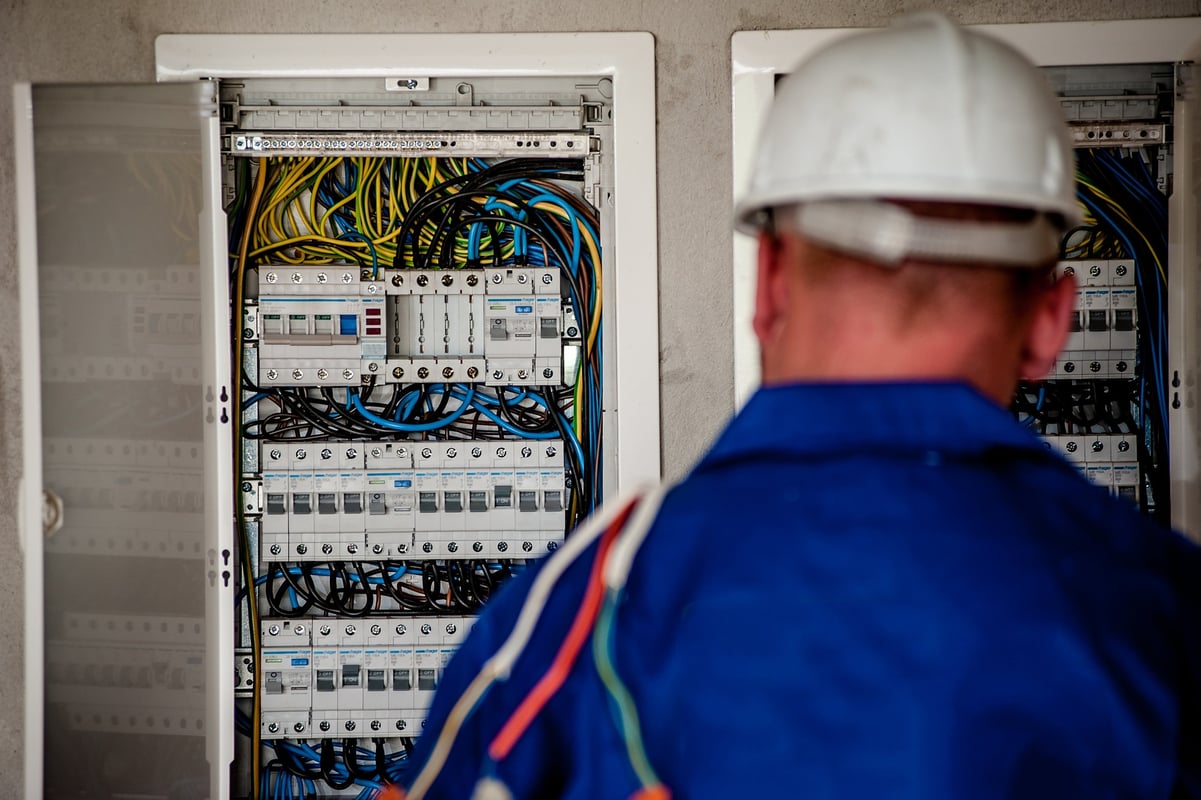Electrician classes near me

In today's world, where electricity is a fundamental part of our daily lives, understanding how much we consume can be quite eye-opening. According to the U.S. Energy Information Administration, the average American household used around 10,791 kilowatt-hours (kWh) of electricity in 2022. That's about 899 kWh each month. The report also shows significant differences between states, with Louisiana leading at 14,774 kWh and Hawaii at the lower end with 6,178 kWh annually per household. But behind every flick of a switch or press of a power button is the intricate work of electricians. They're the ones who install, maintain, and repair the electrical systems that keep our homes, schools, and workplaces running. Without them, we'd be left in the dark.
For those aspiring to become an electrician, it's worth noting that on Dreambound, there are 43 electrician programs, 18 upcoming classes, and the average class length is 1 month. Dreambound stands out as the top platform for vocational schools, offering students the convenience of comparing training programs across various fields like healthcare, business, technology, and more. To truly grasp our impact on others' lives, it's best to read reviews from those who've experienced our services firsthand:
- "I liked how it was easy to access and everything was so user-friendly without any issues. It was helpful. I definitely recommend Dreambound to anyone interested." - Daniel Martinez
- "My experience with Dreambound was really good. The team of people helping me succeed was very attentive. They guided me through the enrollment and financial aid processes." - Katrina Johnson
- "I like the fact that Dreambound had a variety of classes to choose from, and they were not too long to complete. I may consider taking another class." - Dorothy McDaniel
If you feel that spark of excitement about electricity and becoming an electrician, you can chat with electricians around you for insights. Alternatively, continue reading for more details and let Dreambound ignite your search for the perfect electrician training program tailored to your needs.
Electrician Classes by City
In order to help you find electrician class, at Dreambound we've gathered the most comprehensive list of electrician classes in the US. Below you can find a list of electrician classes, organized by city. If you don't see your city listed, you can always search by zipcode.
How to Become an Electrician
We understand that taking the first step to becoming an electrician can feel like a big leap, but it's also an exciting journey full of opportunities. That's why we're trying to demystify the process by writing guides on how to become an electrician. Since State process or requirements may vary, we've written separate guides for each state:
- How to Become an Electrician in Alabama
- How to Become an Electrician in Alaska
- How to Become an Electrician in Arizona
- How to Become an Electrician in Arkansas
- How to Become an Electrician in California
- How to Become an Electrician in Colorado
- How to Become an Electrician in Connecticut
- How to Become an Electrician in Delaware
- How to Become an Electrician in District of Columbia
- How to Become an Electrician in Florida
- How to Become an Electrician in Georgia
- How to Become an Electrician in Hawaii
- How to Become an Electrician in Idaho
- How to Become an Electrician in Illinois
- How to Become an Electrician in Indiana
- How to Become an Electrician in Iowa
- How to Become an Electrician in Kansas
- How to Become an Electrician in Kentucky
- How to Become an Electrician in Louisiana
- How to Become an Electrician in Maine
- How to Become an Electrician in Maryland
- How to Become an Electrician in Massachusetts
- How to Become an Electrician in Michigan
- How to Become an Electrician in Minnesota
- How to Become an Electrician in Mississippi
- How to Become an Electrician in Missouri
- How to Become an Electrician in Montana
- How to Become an Electrician in Nebraska
- How to Become an Electrician in Nevada
- How to Become an Electrician in New Hampshire
- How to Become an Electrician in New Jersey
- How to Become an Electrician in New Mexico
- How to Become an Electrician in New York
- How to Become an Electrician in North Carolina
- How to Become an Electrician in North Dakota
- How to Become an Electrician in Ohio
- How to Become an Electrician in Oklahoma
- How to Become an Electrician in Oregon
- How to Become an Electrician in Pennsylvania
- How to Become an Electrician in Rhode Island
- How to Become an Electrician in South Carolina
- How to Become an Electrician in South Dakota
- How to Become an Electrician in Tennessee
- How to Become an Electrician in Texas
- How to Become an Electrician in Utah
- How to Become an Electrician in Vermont
- How to Become an Electrician in Virginia
- How to Become an Electrician in Washington
- How to Become an Electrician in West Virginia
- How to Become an Electrician in Wisconsin
- How to Become an Electrician in Wyoming

Jessa Guzon is a member of the School Growth and Customer Success Team in Dreambound. She finds joy in assisting both schools and students in reaching their goals by answering their queries and connecting them with the right people. Outside her professional role, Jessa is a happy-go-lucky person with a thirst for adventure.






